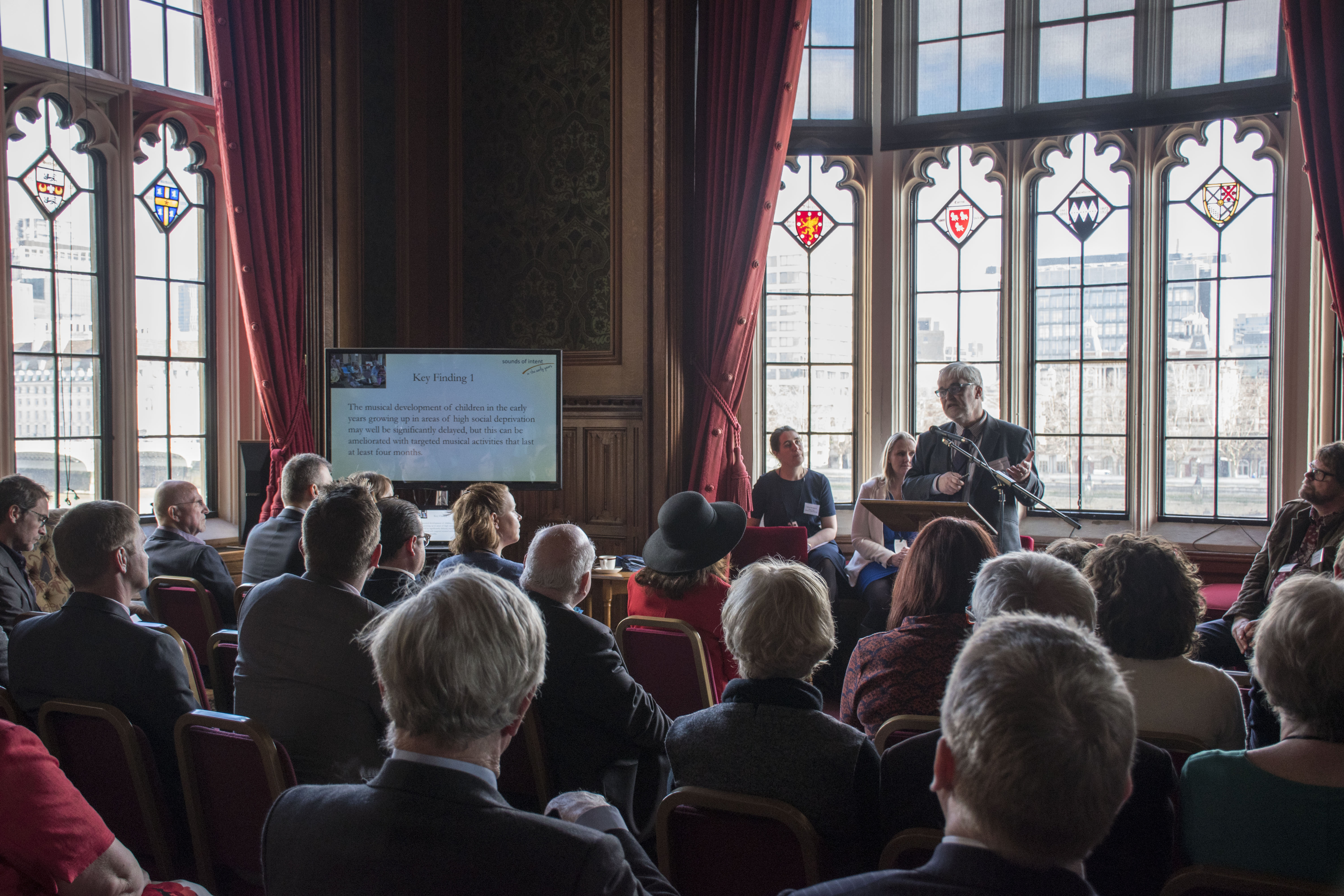Roehampton Professor launches research report showing ground-breaking findings at the House of Lords
- Tuesday, March 26, 2019
Adam Ockelford, Professor of Music and Director of the Applied Music Research Centre, launched and presented the ground-breaking findings from the Sounds of Intent in the Early Years research report at the House of Lords this week.

The report is based on a three-year England-wide project undertaken by Soundabout, in partnership with the University of Roehampton and funded by Youth Music. It provides powerful evidence that every child should have the right to access music.
The project investigated the potential of music to enhance the lives and learning of young children, and was informed by the Sounds of Intent in the Early Years framework. Some of the key findings were that:
- The musical development of children in the early years growing up in areas of high social deprivation may well be significantly delayed, but this can be ameliorated with targeted musical activities that last at least four months.
- The capacity of children with complex needs in the early years to engage with music is likely to be profoundly delayed, in line with their other areas of development, but appropriate music programmes can increase their rate of musical development, and appear to have a greater impact than comparable interventions undertaken when the children are older.
- Targeted interventions that consistently link functional, everyday language with simple melodies can have a positive impact on the speech of young children that is delayed.
- Targeted interventions that help families and practitioners to engage through music with children in the early years who experience social deprivation, including those with complex needs, can improve children’s capacity to listen and attend more generally, and can have a positive impact on their self-confidence and self-awareness and their capacity to make relationships and manage their feelings and behaviour.
- It is not necessary for early years practitioners to be music specialists to understand how children develop musically, and to be able to support such development.
The findings will be of importance to those responsible for providing music to young children, both with and without special educational needs and disabilities, whether researchers, policy makers, managers or practitioners.
Professor Ockelford was joined at the House of Lords by the Children’s Commissioner for England, Anne Longfield OBE, Matt Griffiths the Youth Music CEO and Debbie Wiseman OBE.